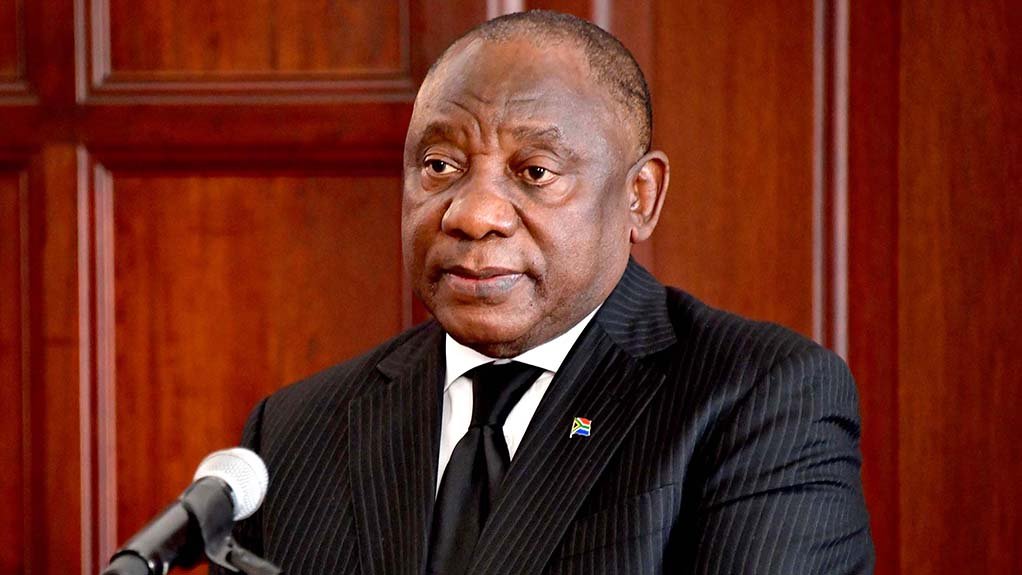Former chief justice Sandile Ngcobo will chair an independent panel that will determine whether President Cyril Ramaphosa has a prima facie case to answer on Phala Phala.
On Wednesday evening, National Assembly Speaker Nosiviwe Mapisa-Nqakula announced the independent three-person panel that must determine whether there is a prima facie case for Ramaphosa's impeachment following the Phala Phala scandal.
They are:
- Justice Sandile Ngcobo, former chief justice of the Constitutional Court of South Africa, appointed as chairperson of the panel.
- Judge Thokozile Masipa, former judge of the Gauteng Division of the High Court of South Africa.
- Professor Richard Calland, associate professor of public law at the University of Cape Town.
The statement from Parliament said, "After careful consideration of the names at her disposal, assessment of their credentials against the provisions of the Rules, as well as a need to secure gender and demographic balance and having established their availability to serve on this panel, the speaker has appointed three fit and proper persons to discharge their assigned responsibilities."
The National Assembly's rules for the Section 89 process - the section of the Constitution dealing with the removal of the president - require three "fit and proper, competent, experienced and respected South African citizens", to serve on the panel.
They must collectively possess the necessary legal and other competencies and experience to perform the preliminary assessment of the motion. If a judge is to be appointed, the speaker must do so in consultation with the chief justice.
"Accordingly, the speaker has conferred with the chief justice of the Republic of South Africa regarding the appointment of judges to the panel, and she has received concurrence," read the statement.
Of the 17 persons that parties nominated for the panel, 11 are retired and serving judges and six are advocates of High Court, senior counsels and law academics.
Masipa drew national and international attention when she presided over convicted murderer Oscar Pistorius' trial.
She did not find the former Paralympian guilty of murder - a decision that was overturned by the Supreme Court of Appeal (SCA).
The SCA also overturned her six-year prison sentence and gave Pistorius a longer term.
Calland has authored several books about South African politics and testified before the Zondo Commission.
He was critical of Parliament's oversight during the state capture era and said MPs must do more to hold the executive accountable.
Ncgobo was Chief Justice from 2009 until 2011.
He was first appointed to the bench in the Western Cape in 1996. Former president Nelson Mandela appointed him to the Constitutional Court in 1999.
Ncgobo also served as a presiding officer of the Independent Election Commission's Electoral Tribunal in the historic 1994 elections and on the amnesty committee of the Truth and Reconciliation Commission.
The panel will now have 30 days to report back to Mapisa-Nqakula.
It must make a recommendation whether sufficient evidence exists to show Ramaphosa committed any of the violations specified in the motion.
In its submission for a motion, the ATM said: "It is common cause that [former spy boss] Mr Arthur Fraser has submitted evidence at the Rosebank police station where the president is implicated in serious crimes, including bribery; money laundering; kidnapping; breaching of customs and excise laws; breaching of SARS regulations; breaching the Prevention of Organised Crime Act; defeating the ends of justice, to mention but a few."
The party also contended Ramaphosa violated Section 83(b) of the Constitution, which enjoins him, as head of state, to uphold, defend and respect the Constitution as the supreme law of the republic.
It argued Ramaphosa violated Section 96(2)(a) of the Constitution, which states Cabinet members and deputy ministers may not "undertake any other paid work".
The rules require the panel to be independent and subject only to the Constitution, the law and the National Assembly rules on Section 89, which it must apply impartially and without fear, favour or prejudice.
It must immediately provide Ramaphosa with copies of all information available to it relating to the inquiry and provide him with a reasonable opportunity to respond, in writing, to all relevant allegations against him.
The panel cannot have oral hearings and must limit its inquiry to the information placed before it by MPs.
In its report, it must include any findings, with its reasons, upon which its recommendations are based. It must also include a minority view, if there is one.
The panel's recommendation will be put to a vote in the National Assembly.
A majority is required to proceed with a Section 89 inquiry - similar to what Public Protector Busisiwe Mkhwebane is currently undergoing.
If that committee recommends Ramaphosa's removal, a two-thirds majority would be required.
If that happened, he would lose all the benefits bestowed on former presidents, and he would not be allowed to occupy public office again.
When he refused to answer a question on Phala Phala in the National Assembly two weeks ago, Ramaphosa undertook to cooperate with the Section 89 process.
EMAIL THIS ARTICLE SAVE THIS ARTICLE
To subscribe email subscriptions@creamermedia.co.za or click here
To advertise email advertising@creamermedia.co.za or click here











